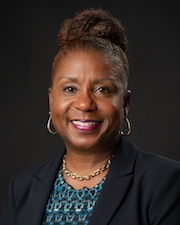Three tips to help educators prepare for the unexpected
April 11, 2025
Adobe Stock / peopleimages.com
As a Professor of Practice at Penn GSE, Andrea Kane works with educators, school administrators, and superintendents to navigate challenges in educational leadership. That work includes supporting students during civil discourse and guiding difficult conversations.
Kane brings firsthand experience to this discussion. During her tenure as superintendent of Queen Anne’s County Public Schools in Maryland, Kane encountered both strong opposition and robust support within the community. The experience affirmed the importance of communication, preparation, and community engagement.
Kane offers teachers and school leaders these tips to better support students.
Engage in self-reflection
Kane says educators must examine themselves and identify their beliefs and biases to lead a classroom effectively. This includes asking tough questions: Does their background inform their positions? What experiences have shaped their worldview?
She also challenges school leaders and teachers to examine how their values align with students, colleagues, school and district leadership, and the community.
This self-examination and awareness can help educators respond to students’ inquiries or moderate heated classroom discussions, including determining what is appropriate to include in the conversation.
“We all have things in our own experiences that might trigger a response, and we need to be aware, so when we are engaged, we respond properly,” she said.
Communicate with key stakeholders
Kane says it is essential that educators and school leaders have an ongoing and open dialogue with their school and district leadership about potentially divisive topics, including politics, military conflicts, banned books, reproductive rights, and more.
“Knowing how to react when students bring things up is important. Teachers need to go to their leaders and understand what is OK,” Kane said.
She added that with clarity and direction, educators are better equipped to engage with students and caregivers.
She also encourages teachers to contact parents and promote their involvement.
“Parents are pivotal,” she said. “They can serve as leaders, not just participants. Find parents who are willing to speak and advocate. They live in the community and talk to neighbors and co-workers.”
Be prepared for what you can — and can’t — say
Inevitably, sensitive topics or heated exchanges will occur in the classroom. As part of their preparations, Kane said educators should understand school district policies and state laws that could limit topics or permitted speech. Conversations can be complicated by opposing viewpoints within a community and, in some states, legislation.
For example, if state laws prevent you from addressing a topic or answering a student’s question, educators should ask their leadership for suggested responses and resources.
Educators still need direction even in a state without prohibitions and where proposals have been vetoed. Kane suggests inquiring about district policy and if they have the autonomy to answer as they see fit, as well as considering data and community input.
“Be proactive and understand the stance of leaders and district,” she said.
Preparation can help teachers and school administrators, too.
“If you want to be clear and protect your employment, understand where your leadership falls in that area,” Kane said.


